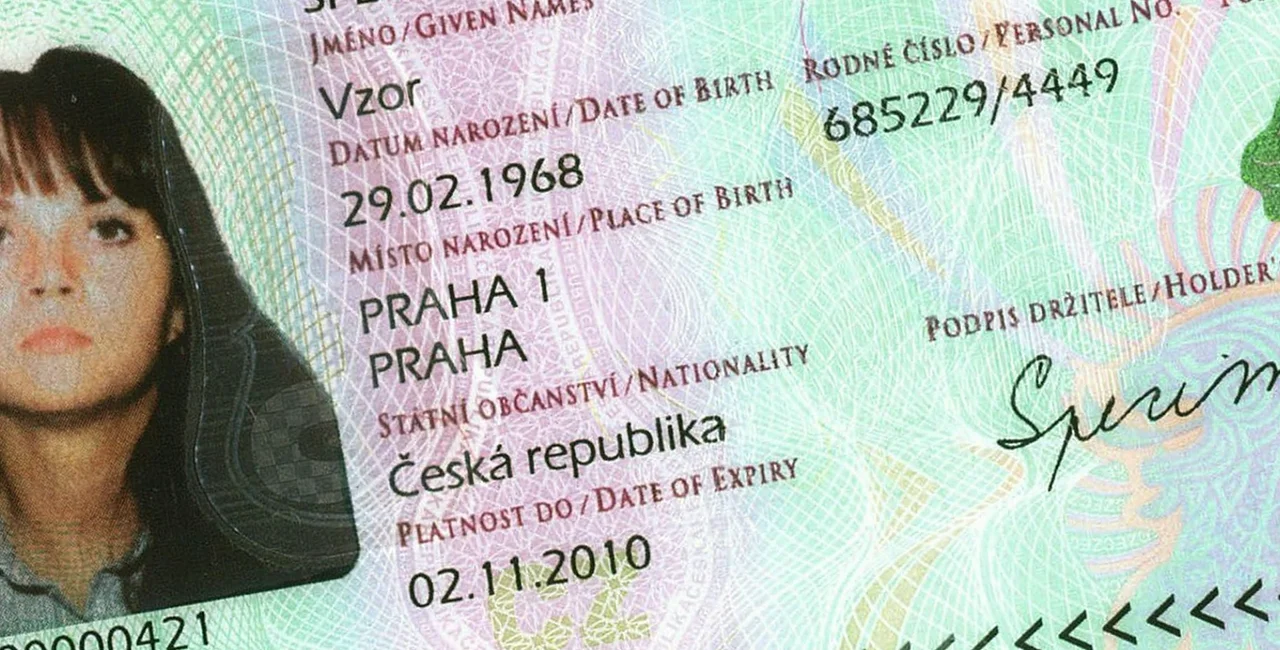Czech birth numbers, the unique identifying number used by citizens and residents, should stop being used as a general identifier as of 2025 – unless politicians delay the process again. The reason for the change is better protection of personal data, but the switch will cost billions of crowns and critics are asking whether it is worth the effort.
The 11-digit birth number (rodné číslo) is used by Czech citizens and residents for filing taxes, banking, insurance, and similar purposes. The system, which dates back to 1954, uses a person’s date of birth and gender as a basis. The first two digits indicate the last two digits of the year of birth, the second two digits indicate the month of birth, which is increased by 50 for women, and the third two digits indicate the day of birth. A four-digit ending distinguishes people born on the same day.
People instead should get new identification numbers that do not reveal personal information that can be potentially misused by anyone who gets hold of the number. Several different numbers are being discussed, and people would use different ones for different purposes. If the plan goes forward, the birth number would no longer be on the newly issued identity cards.
First proposed in 2009
"The goal is to increase protection and minimize the misuse of citizens' personal data. The proposal approved by the government in 2009, and then postponed several times, does not envisage the cancellation of birth numbers, but the minimization of their use where it threatens the protection of personal data," Digital Information Agency (DIA) spokeswoman Karolína Sieglová told news server Aktualne.cz. DIA is the government agency responsible for overseeing the change.
Does sharing your gender and birth date in an ID number bother you?
Sieglová added that from the birth number, it was relatively easy for anyone to find out where someone lived, whether they receive social benefits, or even whether they had debts or a specific medical condition. The widespread use of a number that reveals such personal information runs against the EU’s General Data Protection Regulation (GDPR).
Politicians from both sides of the aisle are now questioning whether the transition should be delayed again. CNN Prima News reported that Jana Mračková Vildumetzová, a lower house deputy from the opposition ANO movement, would postpone the change to 2028. Jan Skopeček, a deputy from the coalition party ODS, said he does not understand why such a financially demanding system should be introduced at a time of austerity.
News server Seznam Zprávy asked Deputy Prime Minister for Digitization Ivan Bartoš (Pirates) whether the change would again be delayed. He said he is currently examining an analysis of the topic. More information will be available once a decision is reached.
Change will cost billions of crowns
Estimates cited by news server Seznam Zprávy say that the change will cost the government up to CZK 15 billion, while private sector companies will together pay over CZK 40 billion to convert from one system to another.
Public sector economics expert Aleš Rod, who is also a member of the National Economic Council of the Government (NERV), said the costs will likely be much higher and could include unforeseen complications based on past efforts to change Czech bureaucracy.
Seznam Zprávy and Aktualne.cz both cited a study by law firm Grant Thornton and Rowan Legal, which compared switching to a new system to changing the engine in a moving car. "Currently is not the right time to change birth numbers through a revolutionary transition to a new system," the study states.
Jan Matoušek, executive director of the Czech Insurance Association (ČAP), told Aktualne.cz that he knew of no companies that were in favor of the change and that nobody was prepared to implement it. “Essentially, the new measure has no benefit. Even the new system will not prevent possible misuse of identity,” he said.
DIA’s Sieglová, though, was not impressed with the arguments and said that the start date had already been moved several times to accommodate businesses.
"The private sector is more or less already mandated by the GDPR not to use birth numbers. If they do not need this particular identifier for their activities, they should not demand it from their clients. In addition, this is a change that was announced over 10 years ago," Sieglová said.












 Reading time: 3 minutes
Reading time: 3 minutes 






























